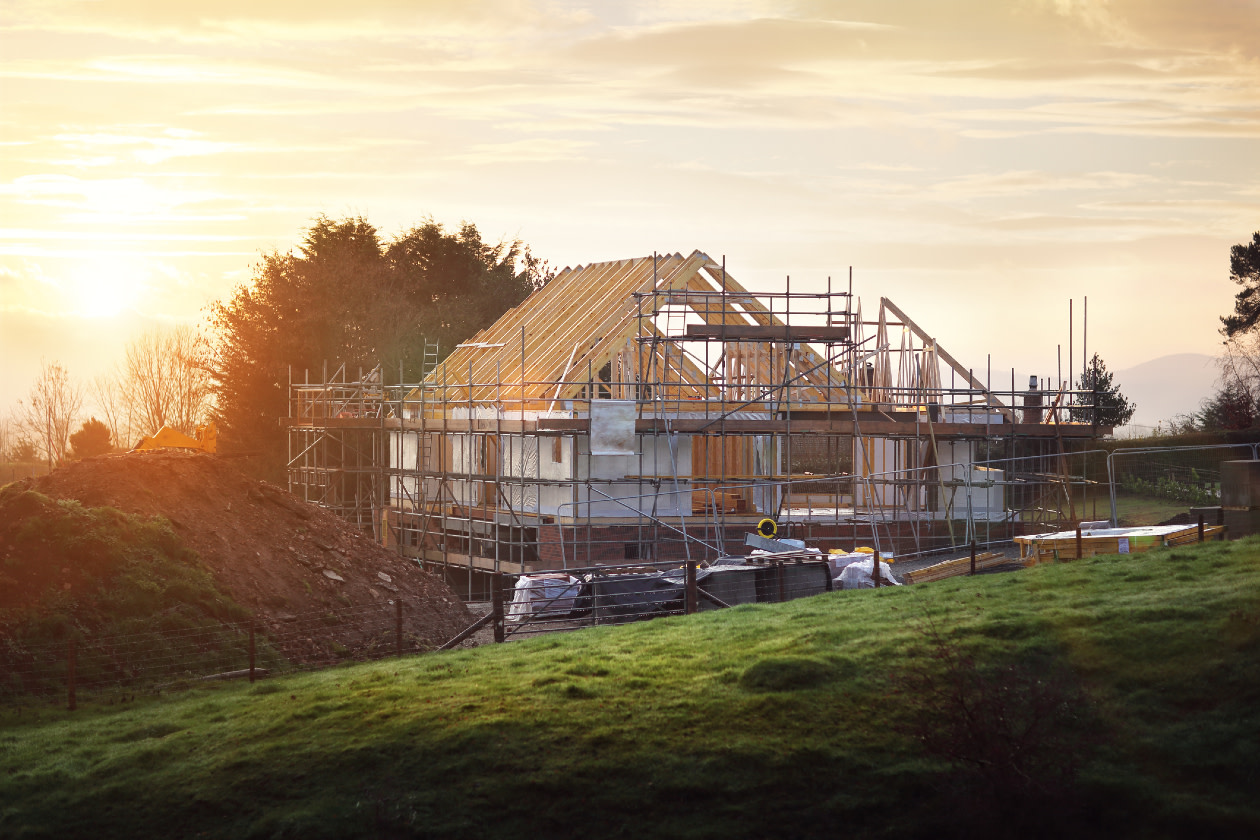Ibstock’s third-quarter sales volumes were in line with the prior year.
A continued focus on selling prices and cost management has helped underpin “resilient” profitability margins.
Management said that there have been early indications of an improvement in newbuild activity, which should feed through to sustainably stronger demand for its products in due course. As a result, “carefully targeted investments” have been made to restore some capacity.
Full-year underlying cash profit (EBITDA) remain unchanged, implying EBITDA of around £44mn in the second half.
The shares were broadly flat in early trading.
Our view
Ibstock’s third-quarter update didn’t give investors many fresh figures to sink their teeth into, but there were a few positive remarks about the demand outlook. Although sales in the period were flat, compared to the double-digit declines seen in the first half this was a welcome improvement.
It’s been a tough period for the brickmaker. Elevated mortgage rates continue to weigh on housing affordability, causing housebuilders to be conservative about starting new projects. That’s contributed to weak demand for Ibstock’s products, and both volumes and prices are subdued as a result.
That’s not a good combination. Brickmakers like Ibstock typically have high fixed costs as the kilns used to make the bricks require a lot of energy to heat up. If enough revenue isn’t coming in the door, there’s little wiggle room to cover the high fixed costs
Cost cuts are continuing and so far this has been enough to keep margins broadly flat. But cost cuts can only go so far, so the squeeze on margins will remain an issue to grapple with moving forward.
To help keep hold of cash, the interim dividend was trimmed. That’s a prudent move in our view and should provide more of a cushion to combat any further bumps in the road. With major expansion projects now close to completion, there should be lower demand for the group’s cash resources moving forward.
Ibstock has the largest brick-making capacity in the UK. And upgrades to other sites should help lower production costs while also giving room to increase output when needed. That means the group's arguably better placed to benefit from higher demand when it eventually arises.
While it’s too early to be certain, there are some very early signs that housebuilding activity is picking up. If expectations of further interest rate cuts through 2025 are met, mortgage affordability should improve and feed through to increased demand for Ibstock’s products.
In order to be ready for this potential uplift, Ibstock’s carefully starting to bring more capacity online. But it’s difficult to map how long it will be before housing market activity really ramps up, and there’s a risk that cash resources and profit margins could get strained if it doesn’t jump back into life quickly enough.
All in, Ibstock still has attractive long-term growth prospects, and investors could be rewarded for their patience at the current valuation. But there’s no guarantee as to when construction activity will take off, so investors should be prepared to stomach some volatility along the way.
Environmental, social and governance (ESG) risk
The construction industry’s ESG risk edges towards the higher end of the spectrum, especially for the Materials sector. Carbon management of company operations and the impact of its products and services is the most acute risk. Other pressing issues are resource use, community relations, labour relations, and bribery and corruption.
According to Sustainalytics, Ibstock’s management of ESG risk is strong.
There is a strong greenhouse gas emission reduction programme in place, and carbon intensity has already declined moderately in recent years. ESG-related issues are integrated into the core business strategy, with management remuneration explicitly linked to sustainability performance targets. Despite this, overall ESG-related disclosures lag behind best practice.
Ibstock key facts
All ratios are sourced from Refinitiv, based on previous day’s closing values. Please remember yields are variable and not a reliable indicator of future income. Keep in mind key figures shouldn’t be looked at on their own – it’s important to understand the big picture.
This article is not advice or a recommendation to buy, sell or hold any investment.No view is given on the present or future value or price of any investment, and investors should form their own view on any proposed investment.This article has not been prepared in accordance with legal requirements designed to promote the independence of investment research and is considered a marketing communication.Non - independent research is not subject to FCA rules prohibiting dealing ahead of research, however HL has put controls in place(including dealing restrictions, physical and information barriers) to manage potential conflicts of interest presented by such dealing.Please see our full non - independent research disclosure for more information.


